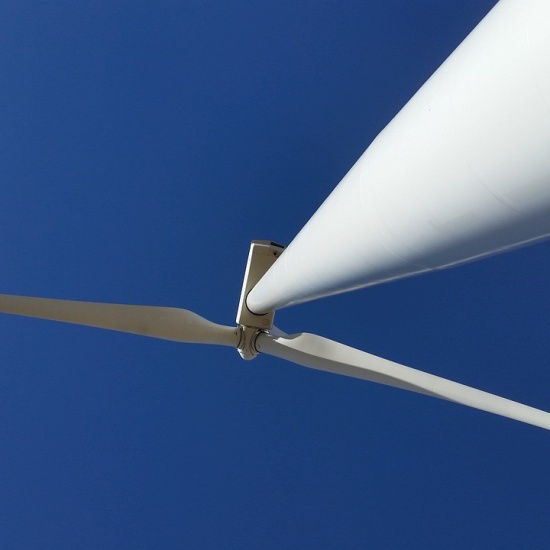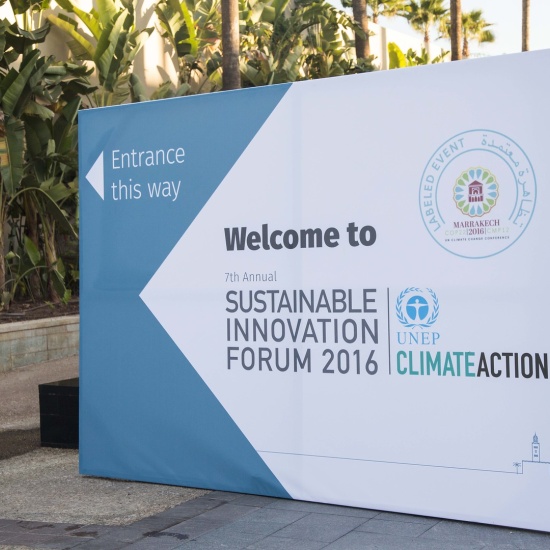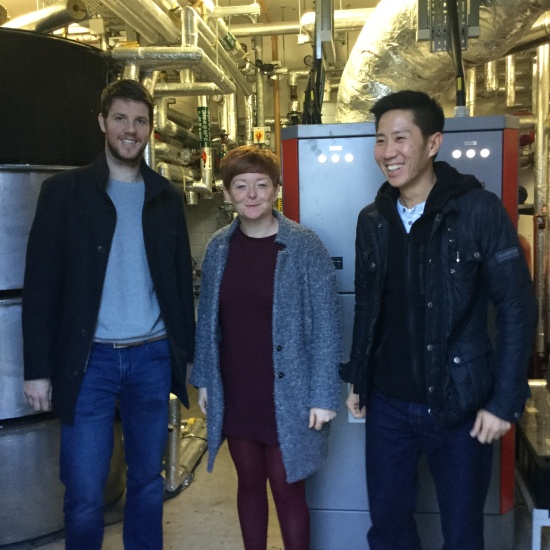The COP24 Climate Change Negotiations - an Inside View
The annual Conference of Parties (COP) to the UN Framework Convention on Climate Change (UNFCCC) provides a framework for countries to come together to take stock of progress, monitor implementation of obligations and continue talks on how best to tackle climate change.

This year's event is the 24th Conference of Parties (COP24) and is taking place currently in Katowice, Poland. I am delighted to be here as part of the Irish delegation and to witness first-hand the negotiations that are being made that will shape our future.
The climate negotiations are a particularly pertinent topic of discussion in the Katowice region, which is the heart of the Polish coal industry employing 90,000 people and approximately half of all EU coal workers. As recently as September 2018 the Polish Prime Minister said that "coal is our black gold" whilst addressing a meeting of local miners. This exemplifies one of the big challenges which needs to be overcome to enable achievement of climate goals - how to support regions which are highly reliant on the fossil fuel industry to transition towards employment in lesser polluting industries.
COP24 is an important milestone for the implementation of the Paris Agreement on climate change as it aims to finalise the rules and guidelines - the 'rule book' - which will be used in the implementation of the Paris Agreement and enable it to be formally put into practice around the world. The Paris Agreement aims to bring all nations together to undertake ambitious efforts to combat climate change and adapt to its effects. One of the central goals of the agreement is to limit global warming to well below 2°C above pre-industrial levels and to pursue efforts to limit the temperature rise to 1.5°C during this century.
Led by Minister Richard Bruton and the Department of Communications, Climate Action & Environment (DCCAE), the Irish Delegation represents Ireland at the COP24. As part of the EU team, the Irish Delegation, which comprises of officials from DCCAE, SEAI, the EPA, the Department of Agriculture Food & the Marine and the Department of Foreign Affairs & Trade (Irish Aid) engage in the international negotiation and decision-making processes in areas such as the rule book, technology, science, agriculture, finance and legal affairs.
SEAI's Role at COP24
I am Ireland's technology delegate here at COP24. The development and transfer of climate technologies is critical for achieving the ultimate objective of the UN Framework Convention on Climate Change (UNFCCC). The UNFCCC calls for all parties (countries) to promote and cooperate in the development and transfer of technologies that reduce greenhouse gas emissions. It urges developed countries to promote, facilitate and finance access to or transfer of climate technologies to developing counties.
I took a break to talk with Dr Frank McGovern, Chief Climate Scientist at the EPA and regular delegate to meetings of the UN Framework Convention on Climate Change and Intergovernmental Panel on Climate Change.
PH: How big of a challenge is climate change?
F McG: As many heads of state, ministers and the Secretary General of the United Nations have made clear here at the COP, climate change is a really big issue and our collective responses to this challenge will entail major transformations. The decisions we make now and in the near future will determine whether we move to a climate neutral, climate resilient economy and society by the middle of this century or run risk of being unable to manage the large-scale impacts of climate change which may change the world as we currently know it.
PH: What are the biggest climate challenges facing Ireland in your view?
F McG: The challenges for Ireland are similar to those faced around the world. We have developed a reliance on fossil fuels to maintain our social and economic activities. This is the main reason why we have a high emissions profile which is contributing to global climate change. We are also increasingly experiencing the impacts of climate change, through sea-level rises and weather extremes. Consequently, there are increased risks of economic and social disruptions. Therefore, we need to decarbonise our energy, heating and transport systems, enhance sinks through increasing forestry, address emissions from industry and food production & consumption.
PH: How is Ireland doing when it comes to climate action?
F McG: It is broadly accepted that we have work to do in meeting our emissions reductions targets to 2020 and 2030 and more broadly to be on track to achieve the national transition objective for 2050. That is to reduce emissions of carbon dioxide by at least 80% by 2050 and aim for neutrality for the agriculture and land use sector. Planning for this has started but work is needed to accelerate actions across all sectors. However, positive developments have also taken place. For example, Ireland is a leader in bringing renewable electricity onto the national grid and new structures and processes are emerging since the 2015 Climate Act was adopted which will enable more effective national actions in future.
PH: What are you working on at COP24?
F McG:COP24 is broadly about 'why and how?'. The 'why' is being considered via the IPCC Special Report on global warming of 1.5 Celsius. This report outlines why the Paris Agreement includes the aim to pursue efforts to keep the increase in the global temperature to 1.5C in this century. It was finalised in October 2018 and presented here at COP24 for consideration and actions. This is one of the key areas I am working on. The other area which I am working on along with the EU team is the 'how?' That is about figuring out how we collectively move together to implement the Paris Agreement from 2020 onwards. That is the process to agree the "rule book" for sharing information on the actions countries are taking to contribute to achievement of the goals of the Paris Agreement. These are called Nationally Determined Contribution (NDCs).
PH: How can individuals and organisations get involved and make a difference?
FMcG: The Paris Agreement provides a good template for getting involved. It is progressed via adopting a longer-term goal and identifying ways to achieve that goal. This involves setting shorter term steps that ultimately lead to achieving the longer term goal. It also involves taking regular stock of where we are at, and ensuring we are on track. Families, communities, organisations, businesses and individuals can adopt this type of approach too. The first step is deciding that you want to make a difference. Then you take action. You can express your goal in many ways but it needs to be ambitious. Do a stocktake of your current activities related to energy, heating, transport and food. Gather as much information as possible including the costs. See what this all adds up to and find out how you can reduce consumption and costs. The first action should be to cut out waste - what I mean here is wasted energy through use of low efficiency devices (e.g. lighting) or poor insulation, unnecessary travel and of course food waste. Then plan to address these. The next step is 'greening' these activities. You can actually have fun doing this while also generating local benefits and global rewards.
SEAI is a key deliverer of Government energy policy. Our programmes have a major impact on the Irish economy through home and community energy upgrades, business supports, research and innovation funding, EV grants to name a few. Cumulatively in the last decade we have been instrumental in achieving more than €1.2 billion in energy savings.
SEAI provides expert advice to drive positive change through our analysis, modelling and support for policy-making. We are catalysing direct action through our design and delivery of grant and incentive programmes and through our capacity-building processes with citizens, communities and private and public sector organisations. In pursuit of our mandate we collaborate closely with a wide range of stakeholders including government departments and state agencies.



